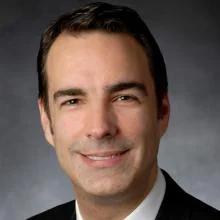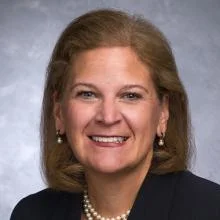As companies consider what’s next after the pandemic, experts have warned of a developing turnover tsunami on the horizon. With expanding “work from anywhere” policies, location may no longer play a role in talent retention. Wise business and IT leaders are taking a proactive approach to ensure their best talent has plenty of reasons to stick around.
We caught up with CIOs who recently won the 2021 Chicago CIO of the Year ORBIE Awards to learn how they are retaining top IT talent today. The awards were presented by the Chicago CIO Leadership Association, a professional community that annually recognizes CIOs for their excellence in technology leadership.
From creating an inclusive culture, to getting to know people on an individual level, to focusing on fairness in a hybrid work environment, these award-winning CIOs share how they ensure their best talent feels compelled to stay.
1. Create a culture of inclusion
Leadership CIO of the Year

Linda Jojo, EVP, Technology & CDO, United Airlines: I firmly believe in a culture of inclusion. There just isn’t innovation without inclusion.
At United Airlines, we have an incredibly diverse team – from different industries, life experiences and cultures. We encourage vigorous respectful debate, and celebrate ideas that fail as much as those that succeed. We talk openly and transparently, whether it’s about George Floyd’s murder, the uptick in Asian hate, or the incredible hardships happening in India that are impacting our employees and their families. We strive to connect on a personal level.
Our field is facing a not-so-quiet crisis: the war for talent is fierce, but only a third of people in STEM fields are women, and less than 15 percent are Hispanic or Black. Collectively, CIOs can ease this crisis by working with internship organizations like YearUp and others to attract diverse talent to STEM fields, recruit them to our companies, and retain them with a culture of inclusion.
[ Get answers to key digital transformation questions and lessons from top CIOs: Download our digital transformation cheat sheet. ]
2. Allow people to bring their whole selves to work
Global CIO of the Year

Edward Wagoner, CIO, Digital, JLL: It’s important to remember that when you say “top talent” you are referring to individual people. Just as no two individuals are exactly alike, one-size talent retention policies “misfit” all.
In my experience, talent retention comes down to creating an environment where people realize they can be their whole selves at work. That means taking time to listen to, get to know, and try to understand what the people you define as “top talent” are thinking. Listen to what drives them to want to be there and where their passions lie in what they are doing. And be very open when they have a different opinion so they feel encouraged to challenge your thinking.
It also means respecting and supporting them when they believe they need to make a different choice. They may no longer be a co-worker, but they could be your future peer, sponsor, advocate, supporter and client. In taking this approach, we quite often see boomerangs – people who choose to return to JLL after gaining an experience somewhere else.
Ultimately, top talent has always had choice, and new “work from anywhere” policies may make that choice more tempting if they are unhappy in their role. I can make their choice to stay easier based on how I listen to, support, and encourage them to be their whole selves.
3. Learn what motivates each individual
Large Enterprise CIO of the Year

Bobbie Byrne, CIO, Advocate Aurora Health: I believe that there are four things that need to be balanced in any team member engagement focus: compensation, joy of work, family-life flexibility, and career progression. We all would love to have a joyful, highly compensated, flexible job, that also rockets our career to the next level, but typically it is hard to accomplish all four at one time. I believe it is therefore important to understand the priority of these items for each team member.
Someone who is new in their career may be more focused on career progression and leadership opportunities. Someone who has many family obligations may desire increased flexibility. Someone who is facing down large expenses like college tuition may be willing to forgo flexibility for increased pay. And while there is no job that is worth being miserable over, laughs and fun at work may be less important to some who have other priorities.
I believe that COVID-19 may have changed some priorities for some people and as leaders, we need to check in with team members – even if it is on video. I also believe that in healthcare, joy in work has taken on a new meaning. Joy in work certainly means that work is fun but also that work is meaningful. Our team members have no doubts about how important their work is to our clinicians and patients, and that is a huge motivator for many who choose to work in healthcare.
4. Treat remote and in-person employees the same
Large Corporate CIO of the Year

Nicole White, CIO, Redwood Logistics: For over 20 years, Redwood’s mission has been to bring energy and innovation to logistics and help businesses prosper in a high-demand world. The same goes for our people.
One of the most important steps we have taken to maintain Redwood’s company culture throughout the pandemic has been establishing an environment where our team members still feel appreciated and connected while working remotely. We do this by implementing a regular cadence of activities, including virtual team-bonding events and competitions, continued learning opportunities, and frequent touchpoints with team members to ensure our employees still have valuable face time with their colleagues.
We also strive to ensure each remote employee is offered the same support and recognition as our in-person team members. One way we do this is through our “Redwood Rockstars” program, in which we publicly recognize team members who exude both energy and passion for Redwood values. Lastly, we prioritize setting aside time as a leadership team to brainstorm new ideas to ensure our remote employees continue to remain engaged and adequately incentivized.
[ Are you combining remote and office work? Read also: Hybrid work model: Qualcomm IT, HR execs share 6 priorities for leaders. ]
5. Recognize that talent is central to success
Corporate CIO of the Year

Madhu Reddy, SVP, CIO, Republic Bank of Chicago: Without a doubt, the post-pandemic world has accelerated digitalization and the emerging hybrid work environment. To effectively compete and win in the marketplace, companies across all industries must execute strategies faster and pivot rapidly to seize new opportunities. Talent is central to success.
My organization has implemented workforce initiatives to motivate and increase engagement among employees. We are ensuring that employee contributions are aligned to business priorities to provide a sense of purpose and meaning. We are providing schedule and location flexibility and investing in career growth. We have stepped up communication and involve a broad cross-section of employees in discussions to shape the future of the workplace.
6. Providing challenging, meaningful work
Public Sector CIO of the Year

Tracy Harrington, SVP, CIO, Federal Reserve Bank of Chicago: The new remote reality has indeed placed a brighter-than-ever spotlight on the importance of retaining top talent. I believe in investing in our people so they can learn new skills, which not only enrich and challenge them personally, but also enable them to contribute to our business success.
Our mission is to deliver secure, reliable payments to the whole country. Knowing that the day-to-day work our team members do impacts every household and every business in the country is incredibly motivating and rewarding. The pandemic has been challenging for everyone in a different way depending on their individual circumstances, so we’ve worked hard to be aware, be open, be flexible and lean on our strong culture, where people can be comfortable opening up and asking for help when they need it from their team members and their leaders.
Not everyone will stay forever, but if you treat people well, provide challenging and meaningful opportunities to contribute to the mission, and invest in them personally and professionally, everybody wins.
[ Get exercises and approaches that make disparate teams stronger. Read the digital transformation ebook: Transformation Takes Practice. ]





